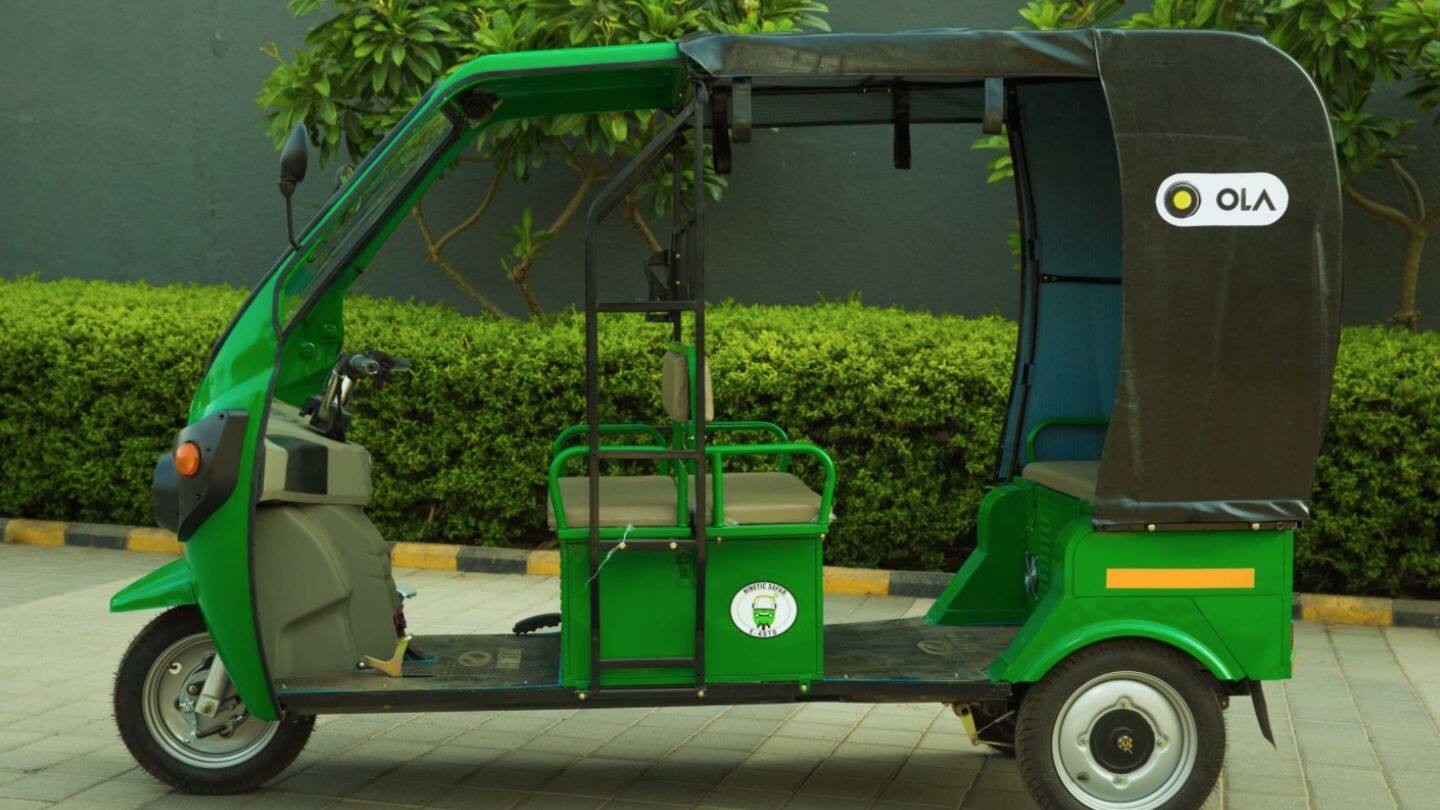
Ola to launch 10,000 e-rickshaws in India within 12 months
What's the story
Ride hailing service Ola has announced it would add 10,000 e-rickshaws to its platform over the next 12 months. The move comes as the Bengaluru-based company kick-starts its ambitious 'Mission: Electric' program which aims to ply one million electric vehicles on Indian roads by 2021. In May last year, Ola had launched its first EV pilot in Nagpur with 200 e-rickshaws. Here's more.
Quote
Why Ola choose e-rickshaws over electric cars?
"Three-wheelers are a vital means of transportation and a source of livelihood for millions of people every day. It also represents an immediate opportunity to improve outcomes for all stakeholders while reducing pollution across towns and cities," said, Ola co-founder and CEO Bhavish Aggarwal.
Go Electric, Go green
Ola to expand its EV fleet to three more cities
Ola's EV project includes electric rickshaws, electric buses and cabs, rooftop solar installations, charging stations, and battery swapping experiments. As part of its 'Mission: Electric', the company will add 10,000 new e-rickshaws across three cities. The company is currently in discussions with stakeholders regarding the launch of its electric rickshaw program and is "willing to work with any city committed to sustainable mobility solutions."
Nagpur Pilot
4 million 'electric' kilometers travelled, many lessons learned: Ola CEO
The SoftBank-backed cab aggregator said their EV program in Nagpur provided significant insights into effectively managing EVs, batteries, and operations. Further, it plans to continue its experiments to find better ways to optimize batteries and charging. "After more than 4 million 'electric' kilometers travelled and many lessons learned, we are significantly expanding our commitment to electrify mobility in India," said Bhavish.
Information
Ola plans to develop a strong business model for EVs
Ola said it is in discussions with "several state governments to create an appropriate policy environment to deploy electric three-wheelers". The company is also "talking to OEM partners and EV innovators globally to bring vehicles on the road in a planned and phased manner."